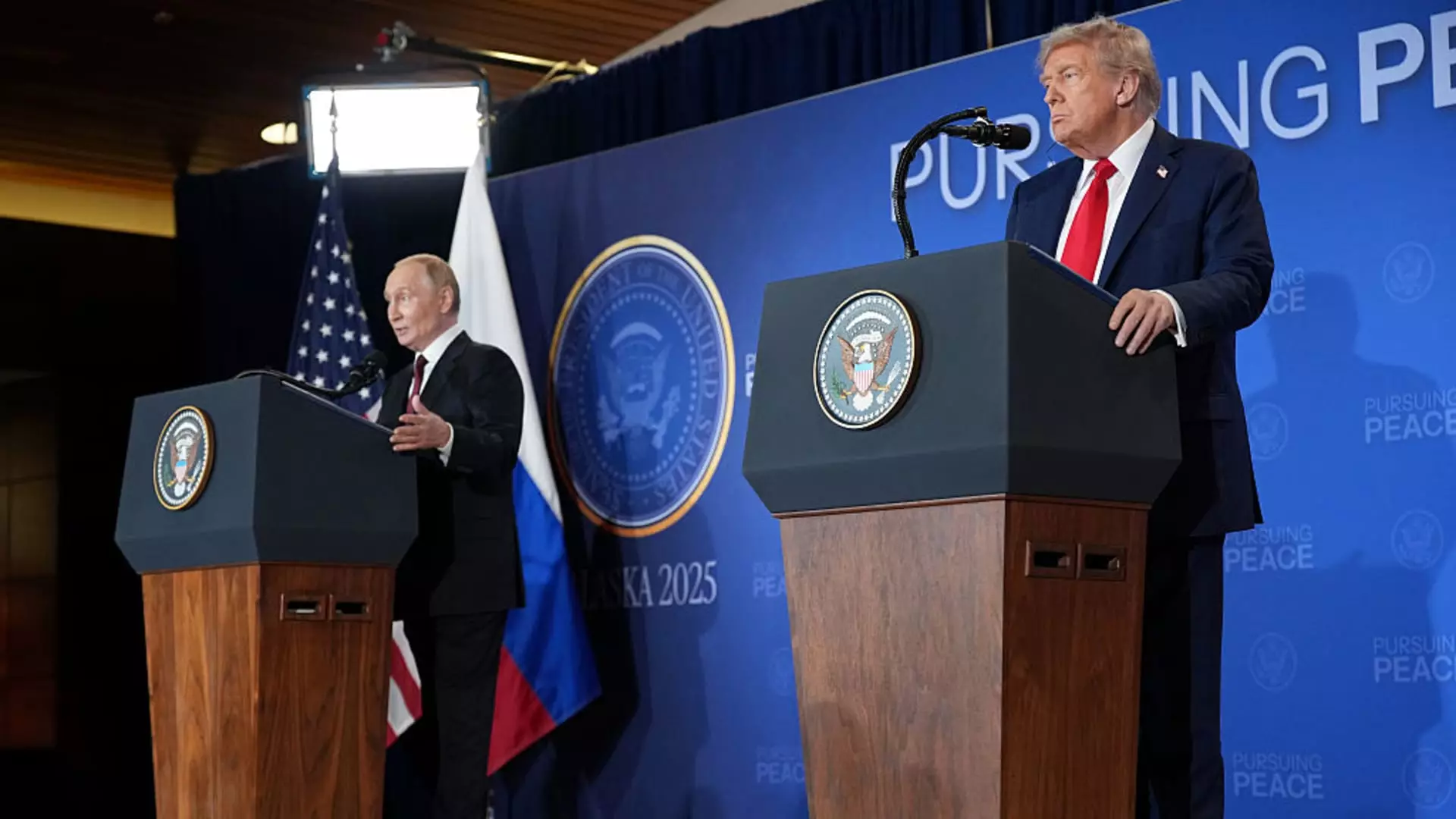In the aftermath of President Trump’s recent summit with Vladimir Putin, the optimism asserted by Trump appears more like a desperate wishful projection than a genuine step toward peace. While he claims the meeting “went very well” and envisions a future where a comprehensive peace agreement replaces a fragile ceasefire, the reality is far more complex and fraught with peril. The push for a broad peace deal, especially without Ukrainian involvement or a clear commitment to ending hostilities, risks rewarding aggressive expansionism. Trump’s rhetoric, seemingly dismissive of the urgent needs of Ukraine and its allies, fosters an illusion that diplomacy alone can resolve a brutal and ongoing conflict—a notion that underestimates the depth of Russia’s strategic ambitions and the resilience of Ukrainian sovereignty.
The Danger of Misplaced Optimism
By sidestepping the call for an immediate ceasefire and instead advocating for a comprehensive peace agreement, Trump inadvertently emboldens Russia to continue its military campaign unrestrained. European leaders and Ukrainian officials, understandably wary, emphasize the importance of Ukrainian sovereignty and insist that Kyiv must have a seat at the negotiating table. Trump’s stance, which aligns more with a realpolitik perspective, neglects the human toll of war and the importance of upholding international norms. Imagining that diplomacy can be hastily stitched together without addressing the underlying issues of territorial integrity and security risks undermining decades of diplomatic efforts to contain Russian aggression.
The Illusion of Neutral Mediation
While Trump claims to have consulted with Zelenskyy and European leaders, his failure to include Ukraine directly in negotiations or to promote a clear framework for ending the conflict is troubling. It feels less like a genuine attempt at diplomacy and more like a geopolitical maneuver designed to appeal to certain domestic audiences or to project an image of a balanced approach. However, neutrality in peace talks is dangerous—it dilutes accountability and may legitimize Russia’s narrative that it is pursuing legitimate security concerns rather than territorial conquest. This approach risks turning the conflict into a prize for diplomatic expediency rather than a matter of justice and international stability.
The Specter of False Victory
Russian officials, on the other hand, interpret Trump’s comments as a sign of secondary gains and a step toward reshaping the global security architecture in their favor. The assertion that a new security framework is “on the agenda” hints at Russia’s ambitions to redefine regional order—potentially at the expense of Ukraine’s sovereignty. Such developments threaten to entrench the conflict and weaken the collective Western response. The danger lies in accepting a narrative where diplomacy becomes an end in itself, rather than a means to uphold international law and support democratic resilience.
The Critical Eyewear
At its core, Trump’s approach showcases a troubling tendency: an overconfidence that diplomacy, alone, can resolve conflicts rooted in geopolitical power plays and ideological conquest. From a center-liberal perspective, this cavalier attitude minimizes the importance of standing firm against authoritarian aggression. It risks sowing seeds of further instability if peace is pursued at the expense of justice and sustained international pressure. Genuine diplomacy requires more than optimistic declarations; it demands a strategic commitment to defending sovereignty, supporting democratic institutions, and ensuring that peace is not merely the absence of war but the presence of justice.


Leave a Reply